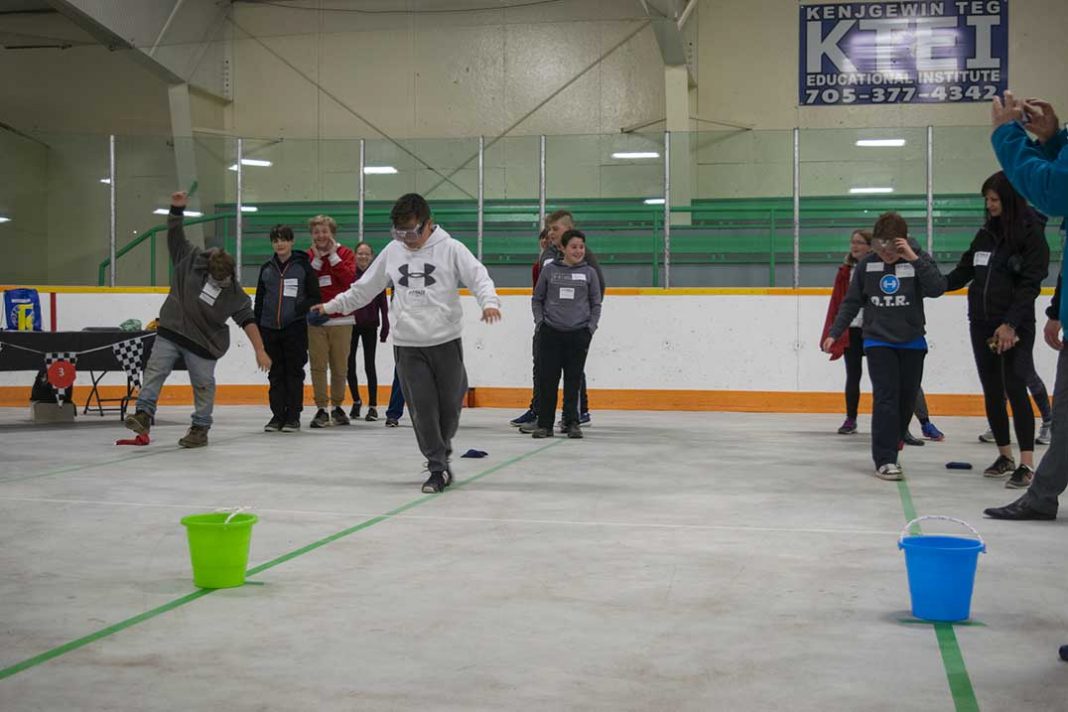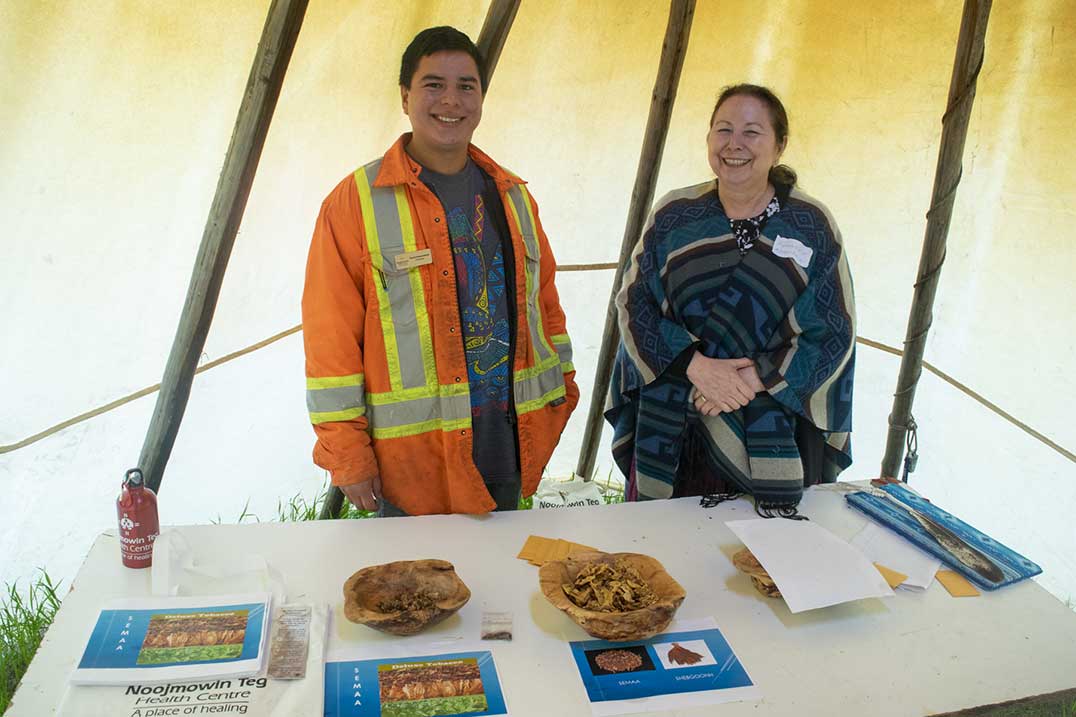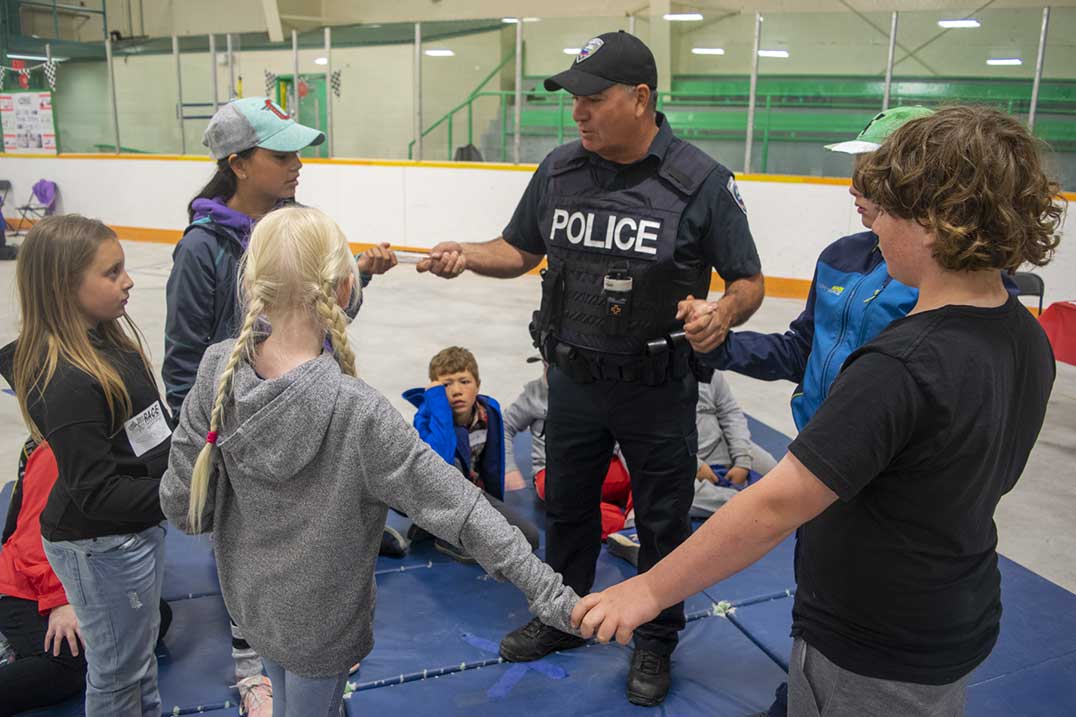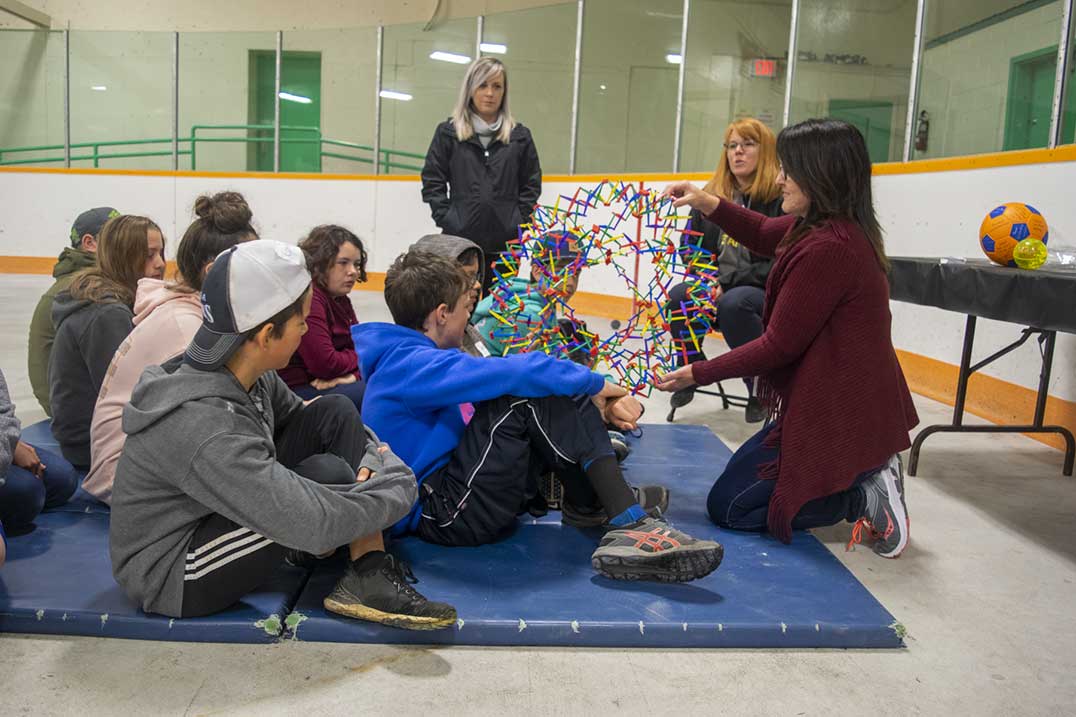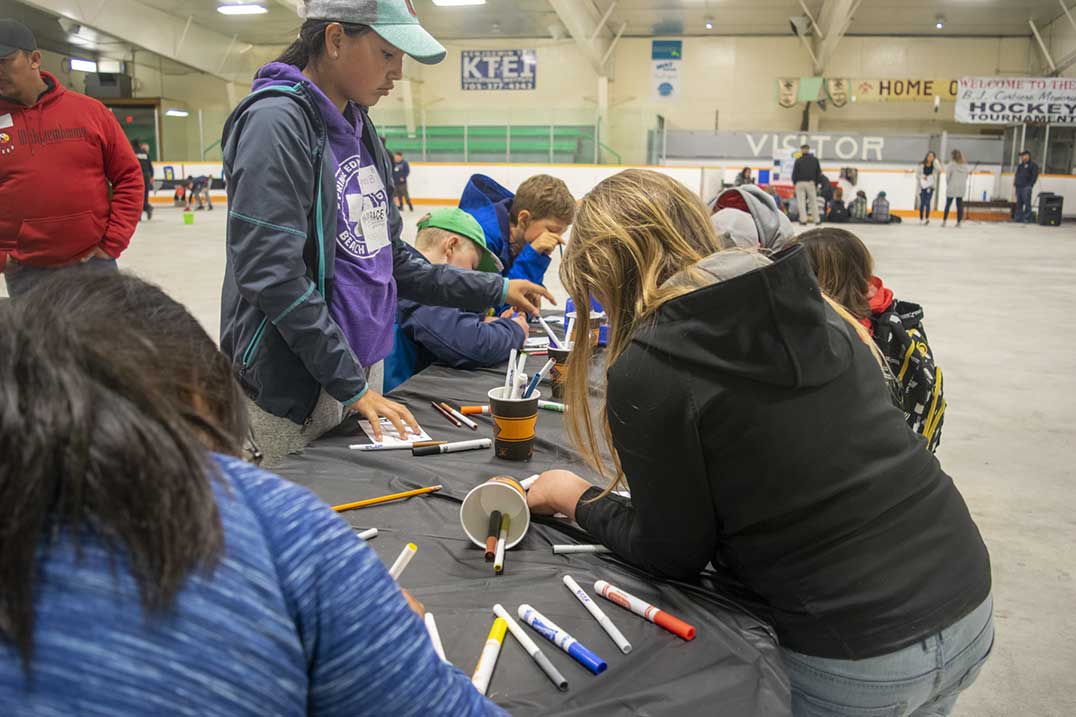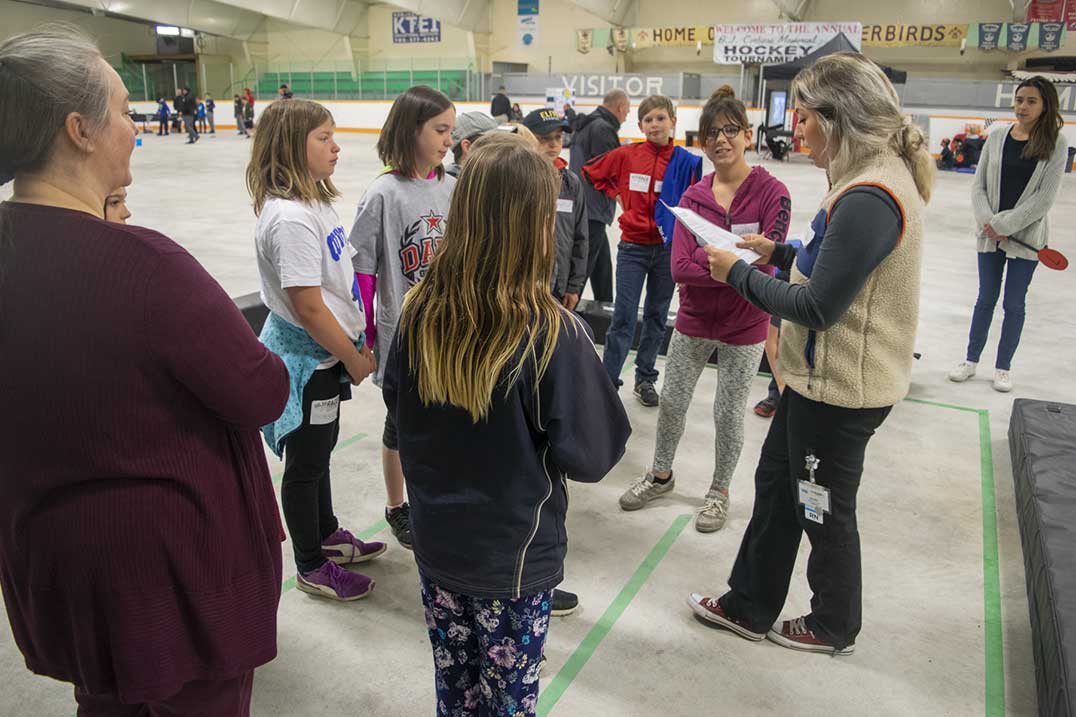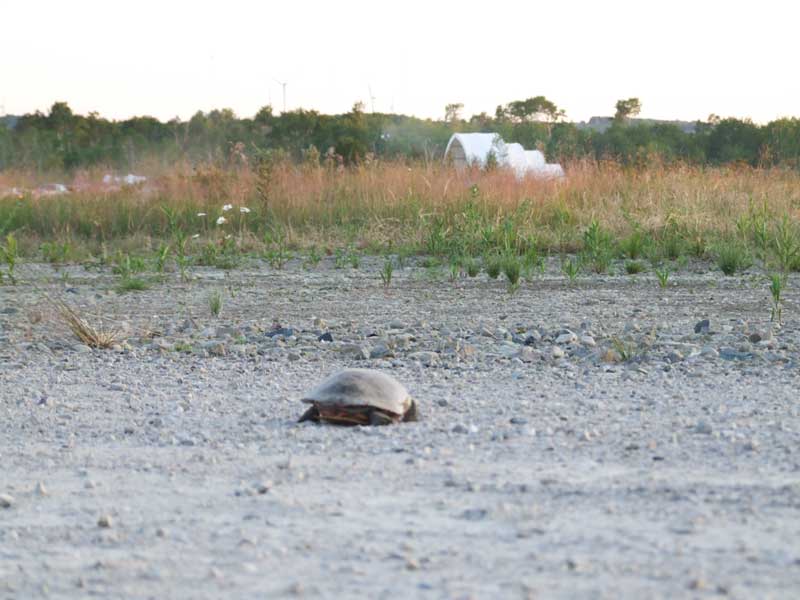M’CHIGEENG – Grade 5 and 6 students from throughout the District of Manitoulin gained a unique perspective on the impacts of drugs and alcohol on themselves, their families and their communities at Manitoulin Island’s first-ever R.A.C.E. Against Drugs event held in M’Chigeeng recently.
“The Simcoe-Muskoka Health Unit runs this event annually so we got in touch with their organization,” said Public Health Sudbury and District (PHSD) public health nurse Lauren Booth, a co-organizer of the event. “We have the Manitoulin Island Drug Strategy committee and in November we did a survey. People said they were hoping for more education for youth and we figured this was the perfect opportunity to bring this event here.”
Ms. Booth ran the event in conjunction with M’Chigeeng Health Services (MHS) mental health worker Rachel Maracle. MHS hosted the event and invited community organizations such as pharmacies, hospitals, police forces, Anishinaabe governance bodies and other health service providers to take part.
“Based on our feedback from this year, which has been really positive, we will be running the event again next year,” said Ms. Maracle.
Students from Assiginack Public School, Charles C. McLean Public School, Central Manitoulin Public School, Little Current Public School, Pontiac School (Wiikwemkoong), St. Joseph’s Anishinabek School (Sheshegwaning) and Shawanosowe School (Whitefish River First Nation) were invited to participate in either the morning or afternoon session of the event.
The project’s name is an acronym for respect, action, courage and excellence and it seeks to encourage healthy, drug-free living for young people while centering its activities around a racing theme. The students broke into small groups and visited several ‘pit stops’ around the M’Chigeeng Arena, including meeting racecar driver Tyler Scott who described how he used his passion for racing to fuel a healthy, well-balanced life.
“This is resiliency-based programming,” said Ms. Booth. “We want the kids to acknowledge all the positive aspects in their lives and use those strengths to help them live drug- and alcohol-free.”
Other pit stops included trainings about safety in regards to prescription drugs; highlighting the impacts of tobacco smoking on health; what to do if someone is suspected to be having an overdose; the ever-popular ‘impairment goggles’ which simulate the impact of substances on one’s vision; how to say no when offered drugs; the impacts of drugs on one’s family and community; a station to draw pictures about the impact of impaired driving on cards that will be distributed at RIDE checkpoints; substance impacts on the brain and a station to encourage students to discover their passions and how they can use those to avoid drugs and alcohol.
To the rear of the arena, Noojmowin Teg’s Frances Mandamin and David Pitawanakwat had a pit stop inside a tipi where they explored the traditional and spiritual meanings of semaa (tobacco).
Ontario Provincial Police (OPP) Community Services Officer Marie Ford was one of the presenters at the OPP’s drug refusal pit stop. She emphasized the importance of these skills even beyond a drug context.
“These kids can use refusal skills through their whole lives for situations they’re not comfortable with. If they can practice these when they’re younger, it will be easier as an adult,” she said.
Manitoulin Health Centre’s Max Gervais ran a station describing the health impacts of smoking and led the students in interactive exercises such as breathing through a straw to demonstrate a blocked airway as well as a true and false activity where the students got to test their knowledge.
“It’s really cool to get kids trying to do these activities. I didn’t have this when I was growing up and it’s a wonderful program,” she said.
UCCM Anishnaabe Police Service’s Brittany Allen ran the ‘Think of Me’ station, where students created messages for traffic offenders about the impacts of their actions.
“This gives us a chance to influence the decision of people getting behind the wheel impaired before they even start driving,” she said.
All three Island police forces will soon be distributing versions of these cards—made by local children for local drivers—at RIDE checkpoints across the region. Ms. Allen said she hopes the community aspect will make the message even more significant for drivers on Manitoulin.

